Category Archives for "Science"
Science news
Science news
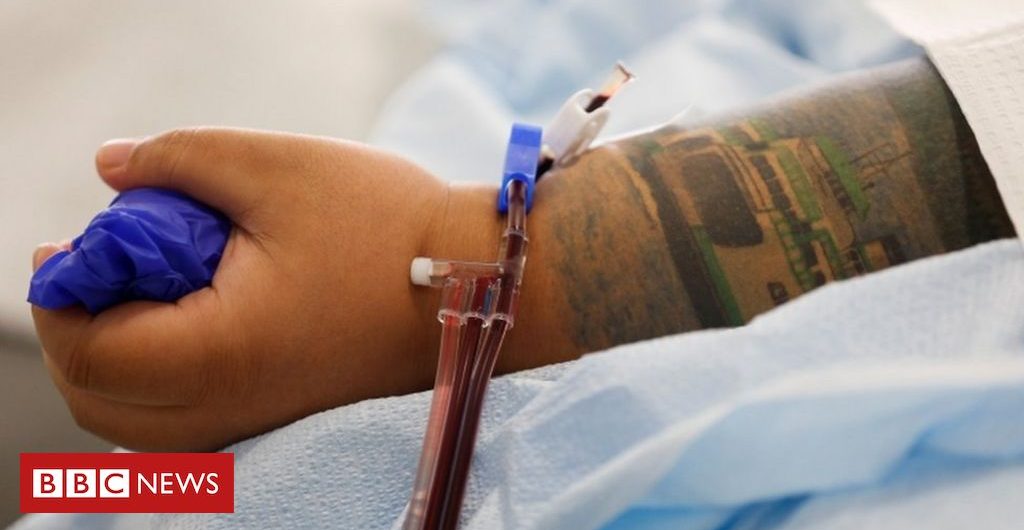
Science
 Image copyright
Image copyright
Reuters
The top doctor at the US Food and Drug Administration (FDA) has apologised for overstating the benefits of plasma for treating Covid-19 patients.
FDA Commissioner Stephen Hahn came under fire after his agency on Sunday gave emergency authorisation to use convalescent plasma on Covid patients.
Echoing President Donald Trump, Mr Hahn touted the treatment as life-saving.
Scientists quickly questioned the data provided by Mr Hahn, who suggested plasma could reduce deaths by 35%.
This claim exaggerated preliminary findings from a clinic at the Mayo Clinic.
“I personally could have done a better job and should have done a better job at that press conference explaining what the data show regarding convalescent plasma,” Mr Hahn told CBS News on Tuesday.
But Mr Hahn maintained that the decision to authorise the treatment for emergency use was made by FDA career scientists, “based upon sound science and data”.
Mr Hahn’s remarks come as he fields criticism for appearing to play politics, backing the Trump administration amid its push for a breakthrough treatment of Covid-19 in the run-up to the presidential election on 3 November.
Announcing the emergency use of blood plasma, Mr Trump heralded the “historic” step, saying the treatment would save “countless” lives.
The announcement came a day after Mr Trump accused the FDA of impeding the rollout of vaccines and therapeutics for political reasons.
More than 177,000 people have died from coronavirus since the start of the outbreak in the US, according to a tally by Johns Hopkins University. Nearly 5.8 million cases have also been confirmed nationwide. The country has had more confirmed cases and deaths than anywhere else in the world.
The FDA had already approved the use of plasma transfusions on coronavirus patients under certain conditions.
It has now given the treatment “emergency use authorisation”, rather than full approval, saying that early research suggests blood plasma can decrease mortality and improve patient health if it is administered within the first three days of admittance to hospital. However, more trials are needed to prove its effectiveness.
The agency said it had concluded it was safe after reviewing the results of 20,000 patients who had received the treatment so far.
The FDA said people under the age of 80 who were not on a respirator and received plasma containing high levels of antibodies had a 35% better survival rate a month after the treatment than those who had received plasma with a low level of antibodies. But the agency did not include a comparison group of untreated patients, meaning no conclusions can be drawn about absolute survival rates.
Several experts, including Dr Anthony Fauci, a member of the White House’s coronavirus task force, have expressed reservations about the robustness of studies so far. And speaking to the New York Times on Monday, one of the Mayo Clinic study’s main authors, Dr Arturo Casadevall, said he did not know where the 35% figure had come from.
Many countries are using plasma as a coronavirus therapy, but it’s not yet clear how effective the treatment is.
The decision by the US FDA to grant emergency use is a balance of risks. It says, based on the evidence so far, convalescent plasma may lessen the severity or shorten the length of Covid-19 illness.
Certainly, sick coronavirus patients whose own immune systems are struggling to fight off the pandemic virus might get protection from a transfusion of antibody-rich plasma from someone who has successfully recovered from Covid-19.
Convalescent plasma has been used to successfully treat other diseases, including Ebola.
It is generally well-tolerated, but unwanted effects can occur, including harmful allergic reactions.
A recent UK analysis said it remained “very uncertain” whether plasma was beneficial for people admitted to hospital with Covid-19.
Trials are ongoing to understand precisely which patients might benefit and by how much.
Experts want “gold standard” evidence to inform treatment decisions and gathering that data will take time.
World Health Organization (WHO) officials said on Monday that using convalescent plasma was “still an experimental treatment”.
They added that the risks and side effects associated with it, ranging from mild to severe, must be considered.
The WHO has previously said that “Covid-19 convalescent plasma can be made available on an experimental basis through local production provided that ethical and safety criteria are met for its preparation and use”.
In a tweet on Saturday, President Trump said “the deep state, or whoever, at the FDA is making it very difficult for drug companies to get people in order to test the vaccines and therapeutics.
“Obviously, they are hoping to delay the answer until after [the US presidential election],” he added.
Earlier this year, US regulators gave emergency authorisation to Gilead Science Inc’s remdesivir as a therapeutic treatment for coronavirus.
Meanwhile, a report by the Financial Times suggests the White House is considering granting emergency authorisation for a vaccine being developed by Oxford University and pharmaceutical giant AstraZeneca, ahead of the US presidential election on 3 November.
The White House has not commented on the story, but a spokesperson for AstraZeneca told Reuters that efficacy results for its trials were not expected until later this year.
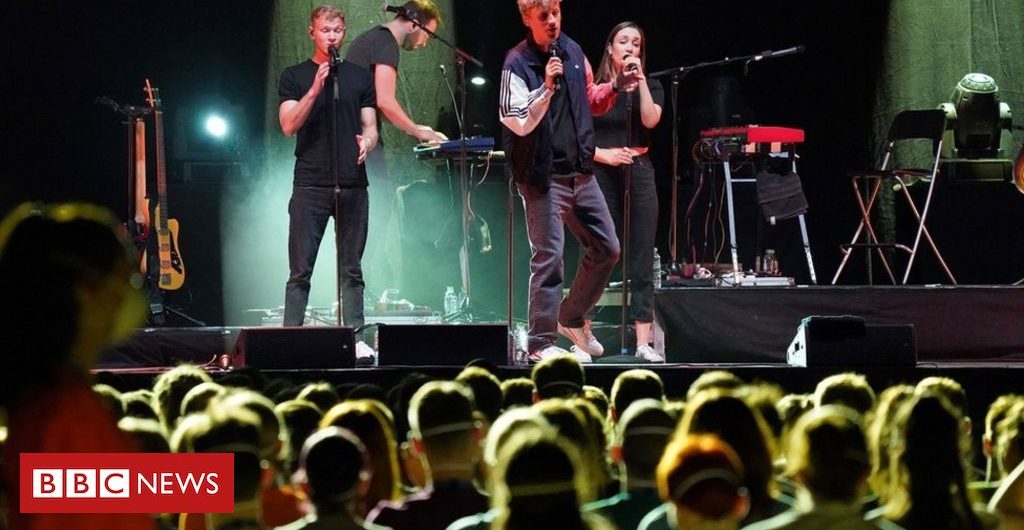
Science
image copyrightGetty Images
Scientists in Germany have held three pop concerts in a single day to investigate the risks posed by mass indoor events during the pandemic.
About 1,500 healthy volunteers aged between 18 and 50 – only a third of the expected number – took part.
But the head of the study, which was carried out in Leipzig by Halle University, said he was “very satisfied” with how the event unfolded.
Singer-songwriter Tim Bendzko agreed to perform at all three successive gigs.
The study came as Germany recorded its highest number of Covid-19 infections since the end of April.
More than 2,000 cases were recorded in the last 24 hours, bringing the
total number of cases to 232,082, the Robert Koch Institute reported.
The concert study, called Restart-19, was created “to investigate the conditions under which such events can be carried out despite the pandemic”, researchers said.
The first of Saturday’s three concerts aimed to simulate an event before the pandemic, with no safety measures in place. The second involved greater hygiene and some social distancing, while the third involved half the numbers and each person standing 1.5m apart.
All participants were tested for Covid-19 before taking part, and given face masks and tracking devices to measure their distancing. Researchers reportedly also used fluorescent disinfectants to track which surfaces audience members touched the most.
“The data collection is going very well, so we have good quality data, the mood is great and we are extremely satisfied with the discipline in wearing masks and using disinfectant,” lead researcher Dr Stefan Moritz said.
image copyrightGetty Images
Singer Tim Bendzko, meanwhile, said the event had exceeded his expectations.
“We really enjoyed it. At first I thought it would be very sterile because of the masks, but it felt surprisingly good,” he said.
“I hope that these results will help us to hold real concerts in front of an audience again soon.”
The initial results of the study are expected in the autumn.
image copyrightGetty Images
The project received 990,000 euros (£892,000, $1.17m) in funding from the states of Saxony-Anhalt and Saxony with the aim of helping to pave the way for the resumption of major indoor sporting and music events by ascertaining realistic levels of risk.
“The corona pandemic is paralyzing the event industry,” Saxony-Anhalt’s Minister of Economics and Science, Prof Armin Willingmann, said before the event.
“As long as there is a risk of infection, major concerts, trade fairs and sporting events cannot take place. This is why it is so important to find out which technical and organisational conditions can effectively minimise the risks.”
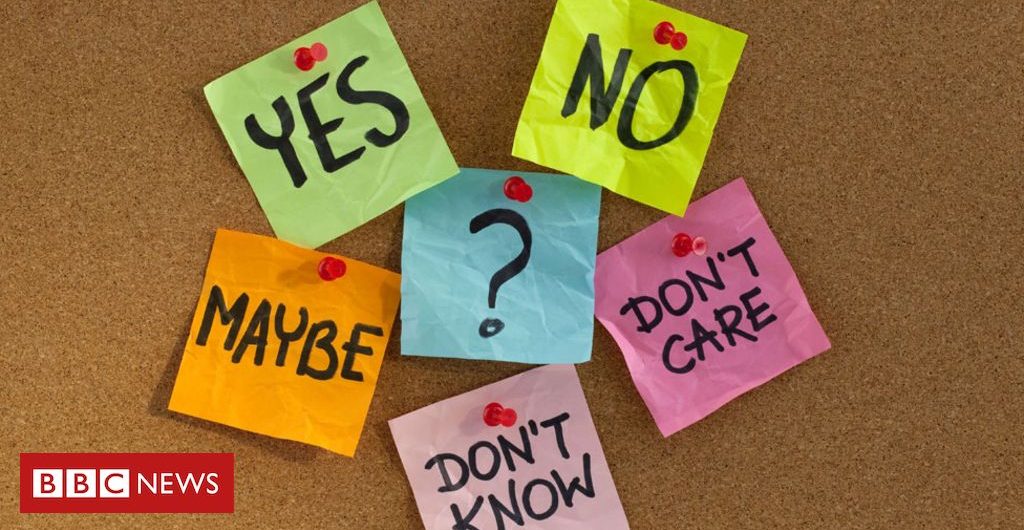
Science
 Image copyright
Image copyright
Alamy
In the final stretch of an already contentious election, Trump and Biden supporters are making a last push to show their backing and convert any undecided voters. But not everyone is thrilled with the choice on offer.
With less than two months to go, both major parties have touted the November contest as “the most important election of our lifetime” and have delivered record-breaking fundraising hauls in recent weeks.
Political observers predict a major surge in overall participation, but many voters are still unsure of whether they will vote for incumbent president Donald Trump, Democratic nominee Joe Biden or anybody at all.
“I feel disillusioned by this election,” said Samian Quazi, a 32-year-old psychiatric nurse from Houston. “We don’t really have any good choices. Neither candidate is really addressing any issues or offering any hope for this country to really make people’s lives better.”
Quazi has voted regularly in election years and said he voted for Democratic Party candidates up and down the ballot in both the 2016 presidential election and the 2018 midterm elections, but he has grown cynical after seeing his preferred candidate, the left-wing Bernie Sanders lose the Democratic Party primary election earlier this year.
“It was an example of the powers that be that control media access in this country not wanting to see their economic interest threatened,” he said.
“I wonder if America is still trying to be a democracy, when it’s really a plutocracy. When it comes to actual economic and structural changes that could possibly threaten their hold on our country, that’s a hard no-go and they will push out anybody who materially can change our lives.”
Political disengagement in the United States has led to low voter turnout rates relative to the rest of the world, with participation in recent elections hovering in the 50-60% range. Overall voter turnout amongst OECD countries is about 70% and even many developing countries tend to see turnout rates higher than those seen in most US elections.
About 64% voted in the 2008 election between Barack Obama and John McCain, but turnout slipped to a 20-year-low during the 2016 election to only 55%.
According to a study released in February by the left-leaning Knight Foundation non-profit, nearly half of eligible voters – or close to 100 million people – consistently sit out elections.
“It’s a very large group and it’s half the country, so it’s a diverse group,” said Eitan Hersh, an associate professor of political science at Tufts University and an academic advisor on the Knight Foundation report.
“The lack of engagement has to do with people not feeling connected to the election system and not thinking it matters.”

Media playback is unsupported on your device
Some countries with higher turnout, like Belgium and Chile, have instituted some form of compulsory voting, which has had dramatic impacts on turnout. Others, like Australia and Germany, have courted new voters either through automatic voter registration or aggressive voter registration initiatives.
In the US, however, voting and registering to vote are more of an individual responsibility. Over the past few decades, many states have placed a premium on improving access to the ballot box, including allowing same-day voter registration, keeping polling places open longer and expanding early or mail voting options.
According to Hersh, the outsized importance placed on improving voter access and bringing down other structural barriers to participation do not have a significant impact on voter participation: “If you want a big picture story of why we have low rates of engagement, it’s much more about what people care about and what motivates people.”
He predicts that, as politics in America becomes more nationalised and partisan, more people may disengage from the political process.
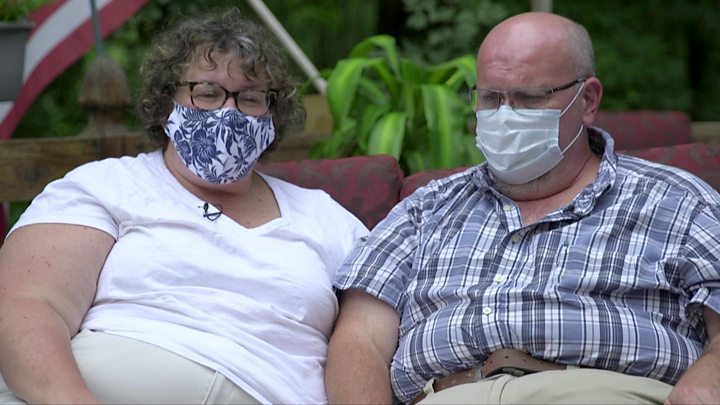
Media playback is unsupported on your device
“It used to be that your votes for a state legislature were not very highly correlated with your votes for president, because they’re different issues,” he said. “In this era, a vote for someone running for city council could be a referendum on Trump in people’s heads.”
Making politics like a fight of good and evil is detached from the reality of running a government, he says. “A lot of people are just not interested in that. Just like in any sport, the more it’s focused on a rivalry, the more it is fun for people who like that sport, but the more it seems to other people like a weird domain of life that is not for them.”
Hrant Papazian, 52, is one such person.
An Armenian immigrant who grew up in Lebanon during a civil war that spanned three decades, Papazian turned 18 in California and has lived there since, but he never votes.
Voting might make you feel good and powerful, he said, but the status quo will always remain intact: “I don’t feel like playing along. I don’t believe that we will ever be offered candidates that are interested in societal health. I can’t imagine the system producing politicians that I could vote for in good faith.”
Image copyright
Courtesy Hrant Papazian
A middle-school computer science teacher by trade, Papazian knows his approach to voting sounds radical, but he is steadfast in his resistance to a political system he argues is in decline.
“Democracy is supposed to get better, but I think it’s the opposite – it gets worse over time. And the bigger the country, the more heterogeneous the country, the less tenable it is. We’re breaking up into smaller tribes and that makes us easier to control and makes it easier to keep us on this path that’s going downhill slowly.
“The only way for real change is for us to boycott.”
Some first-time voters are already disillusioned with the system.
Grace Link, 20, is a college student from the crucial swing state of Wisconsin. She wants to vote in her first ever presidential election, but is unhappy with her options.
“It’s very easy to see when money and power within a party come into play to suppress young people,” she said. “We’re essentially being guilted into voting for Joe Biden and for whomever the Democratic Party chooses when, throughout the primary season, young people were overwhelmingly ignored.”
Image copyright
Courtesy Grace Link
Link argues the nomination of Joe Biden reflects poorly on a system that prioritises the needs of the white upper-class voters over others, including young voters with mounting student loan debt like her.
“A lot of their argument, especially with young people, is that he can be pushed farther left, whereas Trump can’t be. The next four years in the short term may be better, but in the long term, there won’t be any big changes.”
The voices in this story – Grace, Hrant and Samian – are part of the BBC’s voter database for the 2020 US election. Are you an American voting (or not voting) in November’s election? What issues matter to you and why? The BBC wants to hear your stories and perspectives – join our database by filling out the form below.
In some cases your stories and experiences will be published, displaying your name, age and location as you provide it, unless you state otherwise. Your contact details will never be published. Please ensure you have read the terms and conditions and the privacy policy.
Use this form to get in touch.

Science
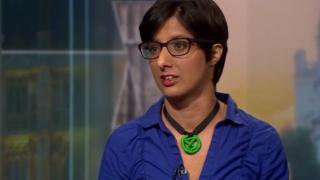
A former Extinction Rebellion (XR) spokeswoman left the environmental group to campaign for nuclear power because she says it is the only way to deal with the climate crisis.
Zion Lights, writing in the Daily Mail, also said that she had become unable to defend some of the group’s claims.
XR “peddle messages of doomsday gloom that alienate” and offer “little in the way of positive solutions”, she added.
The group calls on governments to take immediate action on climate change.
It describes itself as an international “non-violent civil disobedience activist movement” and has been involved in a number of high-profile protests since it was formed in 2018.
Last week it targeted UK newspapers – which it has accused of failing to report on climate change – by blocking printing presses and delaying distribution.
Ms Lights wrote articles for both the Daily Mail and the Daily Telegraph on Thursday explaining her decision to leave behind XR and support nuclear power.
She told the Mail she initially joined XR because its message was “listen to the scientists” and the role of spokesperson gave her a platform “to talk about what I truly felt mattered”.
However, she says she began to rethink her support for the group after an appearance on the BBC’s Andrew Neil Show last October.
She was asked about co-founder Roger Hallam’s claim that science predicts six billion people will die this century due to climate change – a claim that he made to BBC’s HARDtalk.
Ms Lights said: “It’s a headline-grabbing assertion – but unfortunately, it’s also not true, or certainly not backed up by any evidence. As was obvious to anyone who knows me – and even to the casual viewer – I was plunged into a PR nightmare.
“I could not defend the number, but as the official spokesperson nor could I be seen to condemn it. All I could do, instead, was flounder under the hot glare of the studio lights for what felt like an eternity.”
Image copyright
EPA
Ms Lights, who began campaigning about the environment as a student in the early 2000s, said she also had doubts about XR’s approach of telling people “what not to do” and “peddling the notion that the solution to the climate crisis was to turn back the clock to a simpler time”.
Writing in the Telegraph, she said the campaigners who argued that we needed to all live with less – as she once did – had to accept this was not going to happen “and look to solutions instead”.
She said that “many within XR argue in favour of replacing fossil fuels entirely with renewables” but this was not a realistic option and she favoured “a pragmatic approach, rather than peer-group tribal pressure to stick to an outdated mainstream green line”.
Much of the green movement was “steeped in an anti-nuclear mindset”, she said, “when any rational, evidence-based approach shows that a strategy including nuclear energy is the only realistic solution to driving down emissions at the scale and speed required”.
She denied she was making a U-turn, instead saying it was a “logical next step” in looking for solutions rather than “shouting ever more loudly about the problem”.
Ms Lights said she has since taken a role at campaign group Environmental Progress UK, whose campaigns include supporting the building of the Sizewell C nuclear power station in Suffolk.
Nuclear power is planned to be a key part of the UK’s future energy strategy.
BBC environment analyst Roger Harrabin said its key benefit is it helps keep the lights on while producing hardly any of the CO2 emissions that are heating the climate.
However, he said a big environmental problem is what happens to nuclear waste.
A spokesperson for XR said: “In a high stakes scenario you look at the worst-case and plan based on that, because the risks are high enough to warrant taking the risk seriously. It’s an approach employed across the board in all industries. Scientific uncertainty has always been twisted to prevent risk-based analysis.
“Extinction Rebellion has always taken the view that the public deserve to know what credible scientists believe is the worst-case scenario for the development of the climate and ecological crisis over the coming decades.”

Science
By Ken Banks
BBC Scotland North East reporter
“We will only open again when I think it is safe”
Dawn Forrest runs Blether tea room in the suburb of Cults, on the outskirts of Aberdeen.
The small family-run venture had been open for less than a year when it was forced to close in March as lockdown was introduced across the UK.
The cafe reopened after restrictions were eased in Scotland on 15 July – but its return proved to be short-lived.
Three weeks later Aberdeen was locked down again as it experienced a spike in coronavirus cases, linked to the city’s pubs and nightlife.
Bars, cafes and restaurants had to close their doors once more.
On Wednesday, the restrictions were extended for a third week – a move which has split opinion in the city.
Those who spoke out against the continued lockdown included the administration leaders on Aberdeen City Council, which is run by a coalition of Conservative, Labour and Independent councillors.
They said it would “make a bad economic situation even worse” and warned that more than 5,000 jobs were at risk.
A review will be carried out on Sunday, and First Minister Nicola Sturgeon said she hoped some restrictions could be eased from Wednesday.
Blether is now serving takeaways, and Dawn says she will not necessarily fully reopen when she is allowed to do so.
Dawn, 48, said: “Cults is a great local community with a lot of retired people – many of whom have been shielding.
“I cannot have people who have kept safe putting themselves at risk.
“The last thing we want is a customer or member of staff to get Covid. It can just be pure bad luck.
“I will wait and see and open when it feels right.”
Dawn says that she agrees with the continued lockdown “to a certain extent”.
“I am quite happy to do what needs to be done,” she said.
“It’s very difficult. I want to open when it’s safe, and it may not be when [Nicola Sturgeon] says.”
image copyrightPirate Photography
Stuart McPhee is director of Siberia Bar and Hotel in Aberdeen, and is part of a newly-created group called Aberdeen Hospitality Together.
“The hospitality industry in the city directly employs around 14,000 people and that does not involve anyone in the supply chain or contractors beyond,” he said.
“I am into the economic argument. Businesses need to see light at the end of the tunnel.
“What people need is just a bit of confidence.
“We want to do it (re-open the hospitality trade) better this time, be more collaborative.”
He said he was “encouraged” by the introduction of a midweek review due on Sunday, as “every day lost is money lost”.
But he was “not overly hopeful” that a decision would be taken to allow bars to reopen.
“I do not envy the people that make these decisions,” he said.
“We would hope for a bit of clarity, such as indicative dates. We are in the tunnel, but we cannot see the end of it.”
People have been told not to travel to Aberdeen during the local lockdown, and those living in the city face a five-mile limit on travel.
That means Andrew McDonald and his girlfriend Amanda Lightbody can no longer see each other.
Andrew, 31, lives in Aberdeen and Amanda, 28, stays more than 15 miles south of the city in Stonehaven.
After the original lockdown in March, the couple – who have been dating for nearly three years – maintained contact by phone and online to “keep the relationship going”.
Andrew, 31, a visitor experience assistant at Aberdeen Science Centre, said: “I haven’t seen her since July.
“I hate not seeing her. It’s not been easy.
“However, locking down Aberdeen is the right thing to do because it has the potential to save lives.”
He said it had been “a terrible year”, but added: “We need to try to stop the spread of Covid – that should be our priority.”
Public health officials in Aberdeen believe they have the original cluster linked to pubs in the city under control – but it’s the number of other new cases in Grampian that has prompted the Scottish government to hold fire on lifting restrictions, for now.
It takes time for a clear picture of any incident to emerge but to break that chain of transmission local teams need to act fast. Better to stamp out little fires quickly than allow it grow out of control.
As restrictions are eased we are seeing more pockets across Scotland, but the incidence of coronavirus is still low.
Experts tell me these spikes are to be expected but they are a reminder of how finely balanced the whole system is.
There is no need to worry, but no room for complacency.
We are in a far better position now than we were in March when we didn’t know where the virus was in the community.
Getting a test is actively encouraged, while targeted testing in areas where there is an outbreak will inevitably mean you find more positive cases.
So far there has not been a marked increase in hospital admissions; that would be a worrying sign. But it is still a tricky time as our Test and Protect system is tested.
With every step forward there comes a new level of risk.
Gyms, bingo halls and theatres are all next on the list to reopen, and you can add into the mix thousands of students arriving in towns and cities in Scotland to take up their places. All as winter approaches.
We are much better prepared, but there are still uncertainties, and Aberdeen may have had a tough taster of what could happen elsewhere.

Science
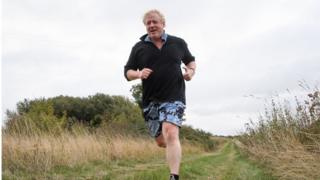 Image copyright
Image copyright
Getty Images
Boris Johnson has hired personal trainer Harry Jameson to lose weight, after acknowledging he was “too fat” when he caught coronavirus.
The prime minister was admitted to hospital with the virus in April but says he has since “been steadily building up my fitness”.
Mr Jameson says his training “considers the mind as much as the body”.
The coach has also helped Love Island host Laura Whitmore train and has a regular slot on her BBC radio show.
Mr Johnson’s time in intensive care is thought to have prompted a change in his views on tackling obesity.
He has previously criticised levies on foods high in salt, fat and sugar – and characterised his stance as “libertarian”.
In July he said that while he was not normally one for “nannying or bossying”, the country did need to lose weight to protect from a second spike.
“Obesity is one of the real co-morbidity factors. Losing weight, frankly, is one of the ways you can reduce your own risk from coronavirus,” he said.
As part of a drive to tackle the problem, the government said it would ban TV junk food adverts before 21:00.
On a personal level, Mr Johnson has said he had “wanted to lose weight for ages” adding that he “struggled” to keep fat off.
He said that since leaving hospital he had lost “at least a stone” by going for a run with the dog.
Speaking to the BBC’s Fit & Fearless podcast, the prime minister’s new trainer, Mr Jameson, said he seeks to help his clients “in ways beyond pumping weights in the gym”.
He says his approach has “always been based on a foundation of mind and body together and ultimately happiness”.
He studied sports science and psychology at Liverpool Hope University and has worked as a personal trainer for 15 years.
Like the prime minister, Mr Jameson also appears to be a fan of the classics having quoted the Roman philosopher Seneca (“as long as you live, keep learning how to live”) in a speech to the Balance Festival in 2018.

Science
Brazilian scientists often stay away from politics but they should be more involved, especially during pandemics, the microbiologist and president of the Question of Science Institute Natalia Pasternak has said.
“I’m a scientist but I’m also a citizen and I see what the current government is doing to my country, especially because the federal government ignores science and ignores the scientific community and it doesn’t look to science for advice as it should during a sanitary crisis, a health crisis,” she said.
President Jair Bolsonaro has been criticised for minimising the risk posed by the coronavirus, calling it “a little cold” at the start of the pandemic.
The country has the second highest number of coronavirus cases in the world with more than 3.7m cases according to Johns Hopkins University.
Watch the full interview on Friday 28 August 2020 on BBC World or watch again on BBC iPlayer (UK only)
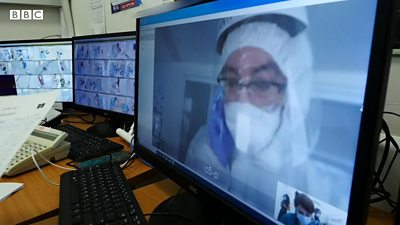
Science
Jerusalem’s Hadassah hospital has been recruiting recovered Covid-19 patients to volunteer inside its coronavirus wards to help patients there.
Under the pilot scheme, they visit patients in moderate or serious condition, who would otherwise be in isolation. The volunteers help the patients eat or just lend a listening ear.
The hospital believes the project to be the first of its kind in the world. And it is likely to be closely watched, given the still unclear science on how much antibody immunity recovered Covid-19 patients have.
BBC’s Middle East correspondent Tom Bateman reports.

Science
By Joanne Macaulay
BBC Scotland news
image copyrightGetty Images
It started off on a piece of land about the size of a tennis court, 350 years ago. But now the Royal Botanic Garden Edinburgh occupies about 70 acres in the city, with other sites in Scotland and abroad, and is a leading research centre for plant science and conservation.
As RBGE celebrates its 350th anniversary, it is holding various events to look back at its origins, and forward to 21st Century challenges.
It all started back in 1670, when two Edinburgh doctors – Robert Sibbald and Andrew Balfour – set up a physic garden, to explore the links between plants and medicine, for the benefit of society.
Today’s Regius Keeper – the overseer of the garden who is appointed by the reigning monarch – Simon Milne says that ethos has endured and expanded.
“From the size of a tennis court we now have four gardens in Scotland and are working in 35 countries around the world, and our education programmes go out to 50 countries,” he says.
“We’ve come a long way and we owe an awful lot to our founding fathers.”
image copyrightRBGE
The herbarium at the gardens in Edinburgh contains more than three million preserved specimens, gathered from around the world over three and a half centuries.
There are thousands of species growing at the Edinburgh site and the other gardens in Dawyck in the Borders, Logan near Stranraer and Benmore in Argyll.
The oldest living plant in the collection is thought to be the Sabal Palm, which came to Edinburgh in 1822.
image copyrightRBGE
The keeper of collections, David Knott, says these are great places to visit, but there is also vital science going on.
“We’re cultivating a wide range of plants from across the world and some of these are grown in the research glass houses and perhaps survive in their native habitats and nowhere else,” he says.
“We’re also cultivating a number of plants that are extinct in their native habitats.”
Events had been planned to celebrate the 350th anniversary, but many had to be cancelled because of the coronavirus pandemic.
However, a revised programme will go ahead this autumn, including an online global panel discussion covering issues such as plant extinction, conservation and global biodiversity.
image copyrightRBGE
Part of the 350th celebrations included the RBGE’s first ever trip to the Chelsea Flower Show, which also had to be cancelled.
But Susie Huggins, who is the co-ordinating the anniversary events, says they will get another chance to exhibit in London.
“The Royal Horticultural Society have invited us back next year. We’ll go with the same magnificent display we’d been planning,” she says.
“We’ll focus on our research and conservation work, looking at what we do to save the world’s plants, what we do in the world that makes a mark.”
image copyrightRBGE
Visitors are once again allowed to visit the gardens, although in limited numbers at the moment.
Lockdown has meant a loss of revenue, but Simon Milne is already planning long into the future.
“We’re launching the Edinburgh Biomes project which will see the rebuild of a lot of our mission critical facilities,” he says.
“The palm house needs to be renovated and restored. There will be new sustainable buildings, new educational facilities that will take us through the next 25, 50,100 years so we can remain at the forefront of plant science and conservation.
“We’ll be building a fantastic new glass house which will make an even better visitor attraction.”
image copyrightGetty Images
As part of the celebrations, the Royal Botanic Garden Edinburgh wants to hear from members of the public about their experiences of the garden.
“We want to know everyone’s memories,” says Susie Higgins.
“Did you come here as a child, bring your own children, get married here? Is there a favourite spot where you find solace? We want to say it’s not just our RBGE, it’s your RBGE.”

Science
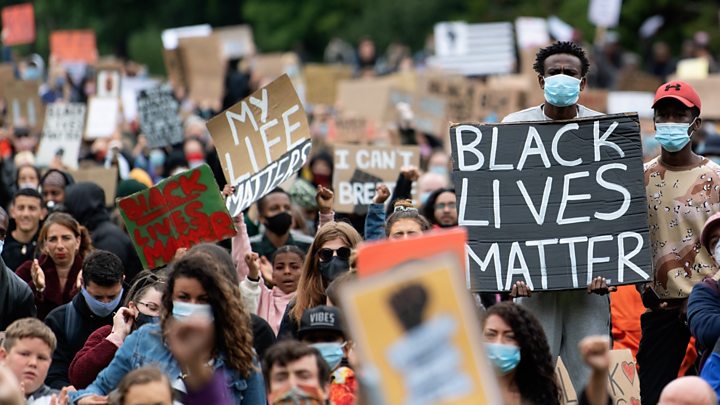
Media playback is unsupported on your device
Black, Polish and Italian contributions to Wales must be taught to all children in schools, the head of a curriculum review has said.
Almost 35,000 people have signed a petition for Britain’s colonial past to be taught in Welsh schools.
Charlotte Williams said it was important “to get away from a black narrative of disadvantage”.
She said the contributions of musicians, artists and academics from all communities must be celebrated.
“There are large parts of Wales where children will not have seen black people except for on TV – and sometimes this can be in very negative ways,” she said.
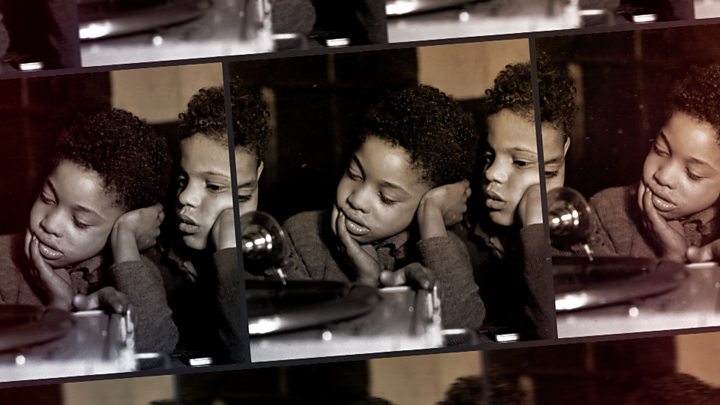
Media playback is unsupported on your device
Following worldwide protests after the death of George Floyd in US police custody, there have been calls for greater recognition of Wales’ role in colonialism and slavery to be taught in schools.
The new working group led by Prof Williams has been set up by the Welsh Government to see how the new curriculum could be changed.
She said it was essential slavery and injustices faced particularly by black people were taught in schools – but that also more had to be done to showcase role models and cultural diversity.
“If we miss out on this, we are doing a disservice to our own history,” she said.
“But I don’t want to send out the message that we are all terribly disadvantaged and victims.
“This is an appeal to schools and teachers to engage with the positive contribution of black and minority ethnic groups, the richness and vibrancy of it.”
Getty
The new curriculum for Wales
Six areas of learning and experience
1Maths and numeracy
2Languages, literacy and communication
3 Health and well-being
4Humanities
5Science and technology
6Expressive arts
Source: Welsh Government, 2019
Wales’ new curriculum, set to be introduced in 2022, is based on six “areas of learning and experience” and does not set out exactly what schools should be teaching.
But Prof Williams said it would be challenging due to the lack of staff diversity and said teachers needed to be given support to “be bold and brave”.
Fewer than 1% of teachers in Wales say they are black, Asian, or from other or mixed minority ethnic backgrounds, according to the 2019-2020 school workforce census.
Forty of the 1,065 students who began training to become teachers in Wales in 2018-2019 said they were from a minority ethnic group.
Prof Williams said some teachers may be scared of exploring certain issues due to a fear of sounding racist, a lack of knowledge, or not being “politically correct”.
“There’s this awful thing about fear of saying or doing the wrong thing,” she said.
“It’s about being bold and being brave, and not stigmatising, and to use examples that will turn people’s thinking around to a kind of normal thinking.”
Image copyright
Welsh Government
Growing up in Llandudno, Prof Williams said her family was the only black one in the town.
“I cannot think of examples from my own education that were pertinent to me and my identity and my heritage,” she said.
“I grew up not understanding my place and my identity and how I fitted in Wales. I think that’s what happening to children, they can’t necessarily connect.”
According to the most recent school census in January 2019, more than 33,000 pupils over the age of five had a black, Asian, minority ethnic or mixed background, making up 8.3% of students in Wales.
But this varied widely by area, from 2% in Blaenau Gwent, to 28% in Cardiff.
“We used to go away to West Africa and we would come back, we’d had this fantastic experience, but no-one would ask us about it,” Prof Williams said.
“Children are not asked and then they don’t expect, which is even sadder, when they don’t think their knowledge and their experience has anything to do with where they are.”
She said making sure children in seemingly “all-white, monocultural” communities learnt about Wales’ multicultural heritage would be challenging, but it was important all children did so and saw themselves reflected in lessons they were taught.
This could mean encouraging schools to showcase more literature, music and art by minority ethnic artists or teaching traditional recipes in lessons, as well as learning about how different groups had influenced and shaped their community.
“I’m not afraid to say that I think it will take time, I think there are challenges,” she said.
“I’m very enthusiastic about Wales and it’s propensity to be progressive and forward thinking in what it does and how it approaches these issues.”
Image copyright
Asha Fletcher-Peters
Going to school in a mainly white school, as a teenager Asha Fletcher-Peters says she felt “isolated” and “like an alien”.
Having moved from London to the Vale of Glamorgan when she was nine, she went from being in a multicultural school where they celebrated Eid and Diwali, to one where she felt like an outsider.
“So many people had never seen anyone like me before,” said Asha, now 25. “Everyone wanted to be skinny, blonde and rich”.
“I just wanted to be like all the other girls. I used to get people using the n-word around me, thinking it was a fun thing to say.”
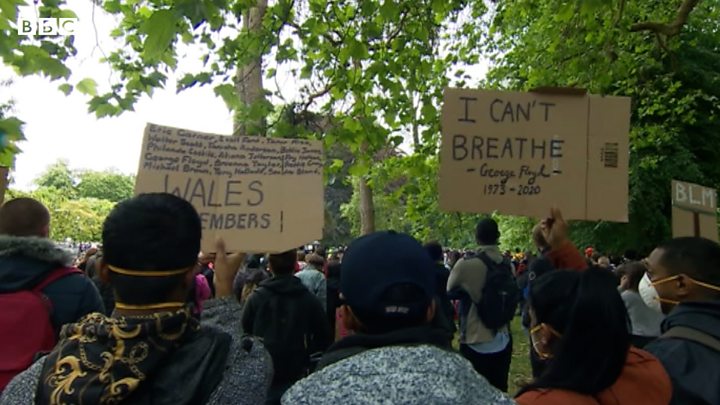
Media playback is unsupported on your device
Asha, who is now a professional musician and actress, said teachers did not cast her as lead roles in shows, as there was no “black part”, and she was faced with white faces in history books and text books.
“No-one told me that black women did these different things, that there were women in hijabs, and not just white men – we didn’t see ourselves in those spaces,” said Asha.
“I felt so isolated my whole life. If I had seen women like me in my science books, I might have chosen differently, I might have ended up in a career in science.”
Image copyright
Asha Fletcher-Peters
Asha said one pupil wrote an essay about her, because they had never met a black person before, and she remembers trying to stay out of the sun so her skin would not get darker.
“People do not realise how damaging these things are,” she said.
“I want the next generation to be themselves, to have their goals and their dreams, not to feel like they have to fit in this cookie-cutter shape.”